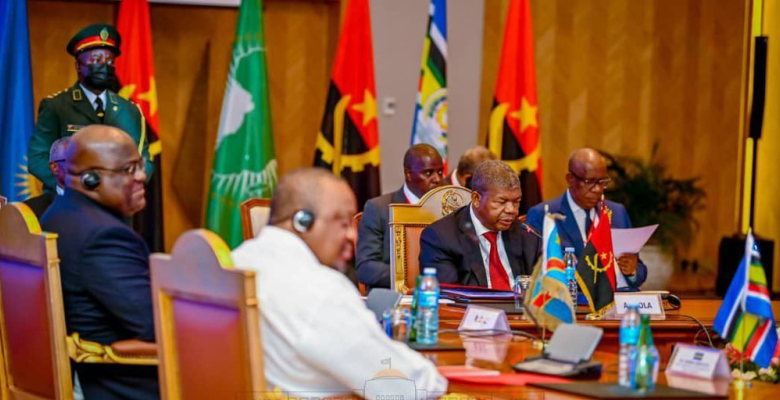Immediate Ceasefire Ordered In Eastern Dr Congo
Leaders of East African states agreed their troops deployed to the region will “use force” against rebels if they do not adhere to the ceasefire order agreed at a summit in Angola.

An “immediate ceasefire” in the eastern Democratic Republic of Congo has been ordered by the representatives of East African nations at peace talks in the Angolan capital Luanda.
The President of DR Congo and Rwanda’s Foreign Minister, attending the “mini-summit” signed a communique agreeing to the ceasefire order, which is to come into effect on Friday Nov 25, the Angolan Minister of Foreign Affairs announced on Nov 23.
A regional force of soldiers from neighbouring countries will intervene if rebels from the March 23 movement do not comply with these conditions.
The M23 rebels did not have a representative at the summit, and they have not commented on the ceasefire.
The mini-summit, presided over by Angolan President Joao Lourenco was attended by President Felix Tshisekedi of the DR Congo and the Rwandan Minister of Foreign Affairs, Vincent Biruta, with a view to put an end to the recent tensions in the eastern DR Congo after the failure of an earlier ceasefire accord in July this year.
The Rwandan president, Paul Kagame did not attend. Rwanda has been accused of backing the rebels, accusations it denies.
The parties involved called for the withdrawal of M23 rebels from “occupied zones” and “retreat to their initial positions”, revealed the Angolan Foreign Minister, Tete Antonio, after the meeting which lasted all afternoon.
The parties also ratified the “pursuit of the deployment of the entire regional East African Community force decided in June”.
“Initially, Kenya will deploy its contingents to Goma and eventually in Bunagana, Rutshuru and Kiwanja”, a final communique at the end of the mini-summit stated.
“If M23 refuses to disengage and liberate all the territories it is currently occupying, the heads of state of the EAC have instructed the regional force to use force to oblige them into submitting to the demand”, the accord states.
Before yesterday’s talks, members of the UN Security Council had on Tuesday November 23, 2022 demanded for the end of fighting, the withdrawal of M23 from zones occupied and the end of “all external support to armed non-state actors including the M23”..
It is worth recalling that the eastern DR Congo has for thirty years been under the grip of violence by armed groups, most of which are offsprings of the 1994 Rwanda genocide.
After a period of relative calm, tensions have resumed since October ending this year. The M23, made up of former elements of the Tutsi rebellion that was defeated in 2013, took up arms again last year ending after reproaching the Kinshasa authorities of not respecting the terms of accords for the demobilisation and reinsertion of its combatants.
The DR Congo said on Tuesday Nov 22 it was “out of the question to discuss with the M23 rebels before their withdrawal from zones they are currently occupying” in the east of the country.
The DR Congo government has been accusing Rwanda of supporting the rebels but Rwanda has systematically been denying the accusations.
“The conditions are known: you withdraw from the localities occupied and at that moment, we would take note and see how to integrate you into the process as envisaged from the beginning”, the DR Congo Minister of Communication and government spokesperson, Patrick Muyaya had declared.
A ceasefire had previously been concluded in July in Luanda but the agreement which was between the two heads of state was immediately violated on the ground.
The Burundian head of state, Evariste Ndayishimiye, who is also the president of the East African Community, was present in Luanda as well as the former president of Kenya, Uhuru Kenyatta in his role as facilitator of the EAC peace process in the DR Congo.
The seven countries that make up the EAC are, Burundi, Kenya, Uganda, DR Congo, Rwanda, South Sudan and Tanzania.
Support Our Journalism
There are millions of ordinary people affected by conflict in Africa whose stories are missing in the mainstream media. HumAngle is determined to tell those challenging and under-reported stories, hoping that the people impacted by these conflicts will find the safety and security they deserve.
To ensure that we continue to provide public service coverage, we have a small favour to ask you. We want you to be part of our journalistic endeavour by contributing a token to us.
Your donation will further promote a robust, free, and independent media.
Donate HereStay Closer To The Stories That Matter




